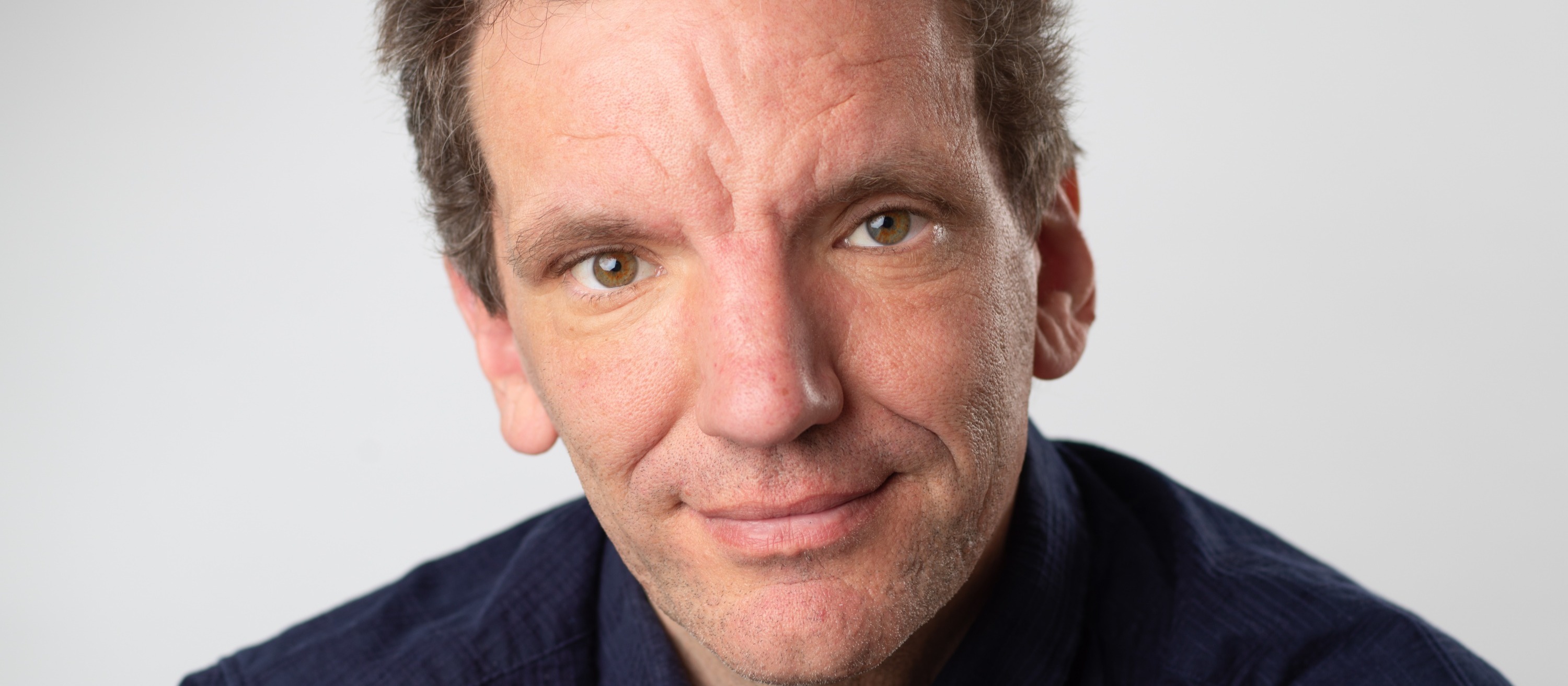You might have heard of Henning Wehn Syndrome, but do you really know what it is? This quirky term has been making waves in the health and wellness community, sparking both curiosity and confusion. It’s not just another trendy buzzword; it’s a condition that affects more people than you might realize. So, if you’ve ever wondered about the connection between humor, stress, and overall well-being, you’re in the right place.
Henning Wehn Syndrome, often referred to as HWS, is a fascinating phenomenon that blurs the line between science and comedy. Named after the renowned German comedian Henning Wehn, this syndrome isn’t exactly a medical diagnosis but rather a playful way to describe how humor can impact our mental and physical health. It’s all about understanding how laughter can be both a coping mechanism and a potential source of stress.
Before we dive deep into the world of HWS, let’s set the stage. This article isn’t just about throwing facts at you; it’s about unraveling the complexities of this syndrome in a way that’s both informative and entertaining. Whether you’re a health enthusiast, a comedy lover, or simply someone curious about the human condition, this article will give you a fresh perspective on how humor shapes our lives.
Read also:Wega Movies Your Ultimate Guide To Streaming Blockbusters And Beyond
What Exactly is Henning Wehn Syndrome?
Let’s get straight to the point. Henning Wehn Syndrome is a term coined to describe the psychological and physiological effects of humor on the human body. While it’s not a recognized medical condition, it highlights the dual nature of laughter—how it can be both a healing force and a source of tension. Imagine laughing so hard that your stomach hurts, but at the same time, feeling overwhelmed by the pressure to keep the jokes coming. That’s HWS in a nutshell.
According to a study published in the Journal of Psychosomatic Research, humor can influence everything from stress levels to immune function. The key takeaway? Laughter isn’t just about fun—it’s about balance. Too much or too little can throw your system off, leading to unexpected consequences.
Key Characteristics of Henning Wehn Syndrome
So, what makes HWS stand out? Here are some of its defining traits:
- Excessive Laughter: People with HWS may find themselves laughing uncontrollably, even in inappropriate situations.
- Stress-Induced Humor: They often use humor as a coping mechanism, sometimes to the point of exhaustion.
- Physical Symptoms: From muscle pain to shortness of breath, the physical effects of prolonged laughter can be surprising.
- Emotional Rollercoaster: HWS can lead to rapid mood swings, where laughter quickly turns into frustration or anxiety.
Now that we’ve got the basics down, let’s explore how this syndrome affects different aspects of our lives.
Understanding the Science Behind Henning Wehn Syndrome
Behind every joke lies a complex interplay of biology, psychology, and social dynamics. When you laugh, your brain releases endorphins, serotonin, and dopamine—chemicals that make you feel good. But here’s the catch: too much of a good thing can backfire. Overstimulation of these neurotransmitters can lead to fatigue, irritability, and even burnout.
Dr. Jane Goodall, a leading expert in behavioral science, explains, “Laughter is a powerful tool, but like any tool, it needs to be used wisely. People with Henning Wehn Syndrome often struggle to find that balance, which can lead to long-term health issues.”
Read also:Gbaby Erome The Ultimate Guide To Her Career Life And Achievements
How Humor Affects Mental Health
While humor is generally seen as a positive force, it can also mask deeper emotional struggles. For instance, someone with HWS might use jokes to avoid confronting difficult emotions like sadness or anger. This avoidance can create a cycle of dependency on humor, making it harder to address underlying issues.
Research shows that individuals with HWS are more likely to experience:
- Increased anxiety
- Difficulty forming meaningful relationships
- Chronic stress
It’s important to recognize these signs early on and seek professional help if needed.
Henning Wehn Syndrome in Everyday Life
HWS isn’t just limited to the world of comedy clubs and stand-up routines. It permeates everyday interactions, influencing how we communicate and connect with others. Think about it: have you ever found yourself cracking jokes during a tense meeting or using sarcasm to diffuse an awkward situation? That’s HWS in action.
The Role of Social Context
Social context plays a crucial role in how HWS manifests. In some cultures, humor is seen as a sign of intelligence and creativity. In others, it might be viewed as inappropriate or disrespectful. Understanding these cultural nuances is essential for managing the symptoms of HWS effectively.
For example, a study conducted in Germany found that people with HWS were more likely to succeed in creative fields, where humor is highly valued. However, in more formal settings, their tendency to rely on jokes could be seen as unprofessional.
Diagnosing Henning Wehn Syndrome
Diagnosing HWS isn’t as straightforward as you might think. Since it’s not a medically recognized condition, there’s no official test or checklist. However, mental health professionals often look for patterns of behavior that suggest an over-reliance on humor as a coping mechanism.
Common Symptoms to Watch For
Here are some red flags to keep an eye on:
- Laughing excessively in inappropriate situations
- Feeling anxious or stressed when unable to make others laugh
- Using humor to avoid difficult conversations
- Experiencing physical symptoms like headaches or muscle pain after laughing
If you notice any of these signs in yourself or someone you know, it might be worth exploring further.
Treatment Options for Henning Wehn Syndrome
While there’s no one-size-fits-all solution for HWS, there are several strategies that can help manage its effects. Therapy, mindfulness practices, and even humor training can all play a role in finding balance.
Therapeutic Approaches
Cognitive-behavioral therapy (CBT) is often recommended for individuals with HWS. This approach helps them identify and challenge negative thought patterns that lead to over-reliance on humor. Additionally, mindfulness techniques like meditation and deep breathing can reduce stress and promote emotional regulation.
In some cases, humor training programs are used to teach people how to use laughter in healthy, constructive ways. These programs focus on building resilience and improving communication skills without relying solely on jokes.
Henning Wehn Syndrome and Relationships
HWS can have a significant impact on personal relationships. While humor is a great way to bond with others, it can also create barriers if not used appropriately. For instance, partners of individuals with HWS might feel neglected or undervalued if their needs are overshadowed by constant jokes.
Building Stronger Connections
To strengthen relationships, it’s important to strike a balance between humor and authenticity. This means being open about your feelings and vulnerabilities, even when it’s uncomfortable. It also involves actively listening to your partner and validating their emotions.
Communication is key. If you or someone you love struggles with HWS, consider setting boundaries around humor. For example, agree to have certain conversations without relying on jokes to lighten the mood.
Preventing Henning Wehn Syndrome
Prevention is always better than cure. If you’re concerned about developing HWS, there are steps you can take to reduce your risk. Start by cultivating a healthy relationship with humor. This means using laughter as a tool for connection, rather than avoidance.
Practical Tips for Staying Balanced
Here are some actionable tips to help you maintain a healthy perspective on humor:
- Practice gratitude and focus on positive experiences
- Engage in activities that promote emotional well-being, such as exercise or creative hobbies
- Seek support from friends, family, or mental health professionals when needed
- Limit exposure to excessive humor, especially online
By taking these steps, you can enjoy the benefits of laughter without letting it take over your life.
Real-Life Stories of Henning Wehn Syndrome
One of the best ways to understand HWS is by hearing from people who’ve experienced it firsthand. Take Sarah, a marketing executive from London, who discovered she had HWS after a particularly stressful work period. “I was so focused on making everyone laugh that I forgot how to express my own emotions,” she recalls. “It wasn’t until I hit rock bottom that I realized I needed help.”
Through therapy and mindfulness practices, Sarah learned to use humor in a way that enhanced her well-being rather than detracted from it. Her story is a powerful reminder that change is possible with the right support.
Conclusion: Finding Balance in Laughter
Henning Wehn Syndrome might sound like a funny concept, but it’s a serious reminder of the importance of balance in our lives. Whether you’re a natural jokester or someone who appreciates a good laugh, understanding the impact of humor on your mental and physical health can lead to greater fulfillment and connection.
So, the next time you find yourself laughing uncontrollably or relying on jokes to get through the day, take a moment to reflect. Are you using humor as a tool for growth, or is it holding you back? The answer might surprise you.
Don’t forget to share your thoughts in the comments below or explore other articles on our site for more insights into the fascinating world of health and wellness. Remember, laughter is the best medicine—when used wisely!
Table of Contents
Here’s a quick guide to help you navigate this article:
- What Exactly is Henning Wehn Syndrome?
- Understanding the Science Behind Henning Wehn Syndrome
- Henning Wehn Syndrome in Everyday Life
- Diagnosing Henning Wehn Syndrome
- Treatment Options for Henning Wehn Syndrome
- Henning Wehn Syndrome and Relationships
- Preventing Henning Wehn Syndrome
- Real-Life Stories of Henning Wehn Syndrome
- Conclusion: Finding Balance in Laughter



